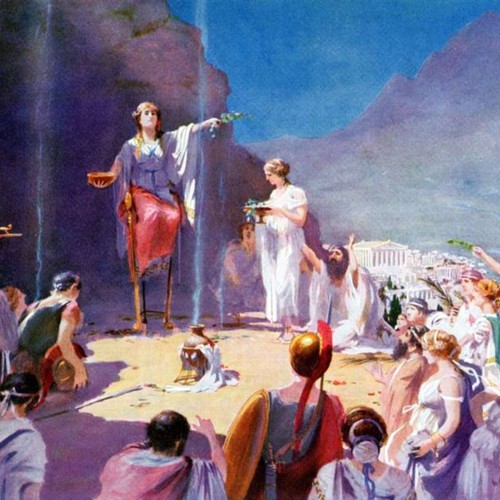
 34 Circe Salon -- Make Matriarchy Great Again -- Disrupting History
34 Circe Salon -- Make Matriarchy Great Again -- Disrupting History Max Dashu - Pythias and Classical Oracular Women
Nov 13, 2022
Max Dashu, expert on the oracular tradition in Ancient Greece and its matriarchal roots, discusses the oracular women at Delphi and their connection to a purifying spring. The podcast also analyzes the portrayal of women in the Iliad and explores Apollo's Asiatic connections and the influence of Crete. Other topics include oracular centers, the impact of gendered language on professions, gender dynamics within matriarchy, and the Oracle of Dodona and other ancient oracles.
Chapters
Transcript
Episode notes
1 2 3 4 5 6 7 8
Introduction
00:00 • 3min
The Oracular Women at Delphi: Ancient Beliefs and Rituals
02:45 • 19min
Analyzing the Plot and Portrayal of Women in the Iliad
21:58 • 1min
Apollo's Asiatic Connections and the Influence of Crete
23:26 • 5min
Oracular Centers and the Taking Over of Sanctuaries
28:38 • 18min
The Impact of Gendered Language on Professions
46:15 • 2min
Gender Dynamics and the Peliai: Women as Elders and Doves
48:27 • 3min
The Oracle of Dodona and Other Ancient Oracles
51:41 • 21min

